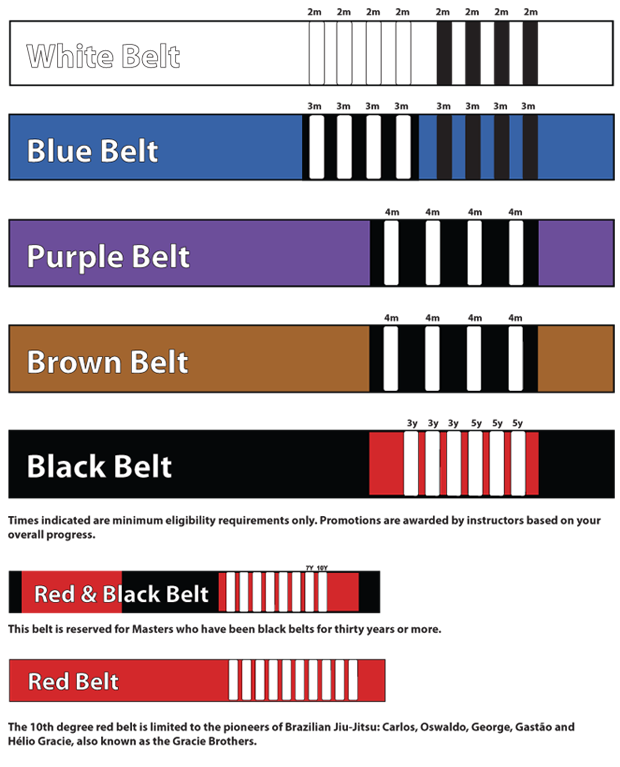
The psychology of self defense often interprets a threat of injury as a threat against one's identity. This defensive reaction is sometimes impeded because the threat is not based on who is being injured. Affirming an important value to oneself can change this perspective and reduce the perceived threat. These are three examples. Read on to learn more about each of them.
Psychopaths don’t care who gets hurt
A psychopath won't care if you don't have an instinct for self-defense. They do not have any remorse for what they do and will not care who gets hurt. They don't care about the hurt they cause and won't feel bad about it. Psychopaths have a grandiose view of themselves and believe the world doesn't apply. These people will do anything to get away with it, even harming other people.
Pathological - they don't care who gets hurt
A psychopath on the other hand doesn't care about whether another person is hurt in self defence and will often manipulate. They instill fear in their victim and hide their threats by telling stories of disappearances, family secrets, or other lies. This manipulative strategy plays on the victim’s emotions and minds, so they succumb to the bully’s demands.

Imperfect self-defense
There is a difference in imperfect self-defense from ordinary self-defense. Perfect self-defense is when a person believes they are in imminent threat and has no other option but to use deadly force for their protection. This doctrine is different from ordinary self-defense. It only applies to situations in which an individual is trying defend themselves against a dangerous threat.
Forcing death
In self defense, it is permissible to use deadly force if the person defending himself or herself reasonably believes that he or she is about to be severely injured or killed. To justify the use forceful violence, a rapist must make threats to inflict serious injury or death on the victim. A force that is unprovoked can be considered deadly. They are: The use of force for self defense must be justified with an unprovoked attack, objectively reasonable force and the person must be reasonably afraid of harm or death. This rule is not applicable to excessive force used during the initial attack, or withdrawal.
Motivational theory
R.W. Rogers in 1975, and then expanded in 1983. The protection motivation theory attempts predict why people make certain choices in stressful situations. The topic of cancer prevention and quitting smoking were among the most popular. Other minor topics covered bicycle helmets, reducing caffeine intake and improving dental hygiene. Pain management after dental surgery was also discussed. Research has shown that psychological and physiological factors related to self defense are similar to those of other topics.

Denialism
It is a primitive defense mechanism. It can be used by itself or together with other subtle mechanisms to keep a person from having to deal with difficult emotions or areas in their lives. Students might not acknowledge their lack of preparation during tests, for instance. The same goes for someone who may try to minimize their effort and avoid acknowledging the fact that they are not prepared for a presentation. There are situations where self-defense denial can prove to be detrimental.
FAQ
Is Cardio Better Than Strength Training?
Both are equally effective. However, cardio is more effective if you're looking to bulk up faster.
Cardio burns far more calories per min than strength training. It also burns fat more efficiently.
Strength training builds muscle mass, but it takes longer to achieve this goal than cardio.
What does butter do for men?
Butter is one source of saturated fats. This type of fat contributes to healthy skin, hair, and stronger bones.
Vitamin K in butter also prevents bleeding from cuts, bruises and other injuries. Vitamin K works with vitamin A to prevent bleeding.
Butter is also rich mineral, including calcium and phosphorous. These elements encourage stronger bones.
Butter is not without its flaws. Butter is high in cholesterol. Studies show that too much cholesterol can increase your risk of developing heart disease.
Butter also contains high amounts of saturated fat, which contributes to obesity and increases cholesterol.
Butter can be spread on bread, but you don't have to dip it into soups or salads if you absolutely must. Bread absorbs less oil than pasta and potatoes.
Which exercise is the best for men?
It all depends on your goals. Cardio exercises are great for anyone looking to lose weight.
Strength training, on the other hand, is better if you are looking to increase muscle mass.
Both types have been proven to have benefits for your overall well-being.
I recommend HIIT (or sprint interval training) if you want to be fit quickly. This type of training helps you burn fat quickly by increasing your metabolism. This type of training also increases your endurance, allowing you to train even when you are tired.
Is weightlifting more effective at burning fat?
Weight lifting will help you burn more fat, but it's best to combine it and cardio.
It is important to do weightlifting right after cardio exercise in order to reap the full benefits.
If done correctly weightlifting can raise your heart rate, oxygen consumption and help you lose weight.
But if you do not combine it with cardio, you will not see any significant changes in your body composition.
Statistics
- By John Thompson Take a whopping 38% off a set of PowerBlock Pros. (menshealth.com)
- According to the American Academy of Dermatology (AAD), men over 50 are at a heightened risk of developing it. (healthline.com)
- Candidates and applicants must pass all four tests at 70% (minimum level) to graduate from Basic Deputy U.S. Marshal (BDUSM) Training. (usmarshals.gov)
- The PRS enabled risk stratification for overall prostate cancer and lethal disease with a four-fold difference between men in the highest and lowest quartiles (HR, 4.32; 95% confidence interval [CI], 3.16-5.89). (pubmed.ncbi.nlm.nih.gov)
- 10 pounds in a month is likely during a lean bulking phase, especially for beginners. (muscleandstrength.com)
External Links
How To
What nutrients does a man need daily?
Men require daily nutrition for healthy growth and development. The body needs vitamins, minerals as well as proteins, carbohydrates and fats.
You also need specific nutrients for different times in the day. Your body makes hormones, antibodies and enzymes when you are asleep. Protein is needed to build muscles and repair tissue damaged when you wake up.
Your body will burn fat at night and store the extra energy as a form of glycogen. Your body has less energy but still requires enough nutrients during this time. If you feel hungry, you may consider having a snack during the evening.
When you work out, you need adequate levels of carbs and protein to fuel your muscles. You may feel sore muscles if you exercise hard.
To prevent this, you must consume carbs and protein within 2 hours of training. To provide energy, your body will begin to break down stored glycogen.
After your workouts, you should eat protein immediately. This prevents muscle tissue loss that happens while you sleep.
During periods of intense physical activity, your body produces lactic acid. It is a form of lactic acid that builds up in the bloodstream. This causes fatigue. This can be avoided by eating foods high in carbohydrates like fruits and vegetables.
Carbohydrates are a good source of energy to help you recover from hard exercise.
A healthy diet should include lean meats such as fish, eggs and milk, cheese, yogurts, beans, seeds, nuts, and beans.
All these foods are high-quality sources of protein. Protein promotes muscle growth, and helps repair damaged tissues. Protein provides the amino acid your body needs for testosterone and sexhormone production.
A healthy skin, nails and joints requires sufficient dietary fats. Healthy men need between 20% - 35% of the total caloric intake to be fat.
Fat helps keep your heart strong and protects against cancer. It helps keep your brain working properly.
Vegetable oils, such as olive oil, sunflower oil or corn oil, soybean oil and peanut oil, can supply most of the fats you require.
These oils have high amounts of monounsaturated oil fatty acids, (MUFAs). MUFAs lower cholesterol and decrease inflammation. They protect your cells from damage by free radicals.
Saturated fats (SFAs), are found mainly in animal products such as meat, milk products, and butter. SFAs increase LDL ("bad") cholesterol, and increase triglycerides. They are also good for weight loss and belly fat.
Plant-based fats such as vegetable oils, seeds, nuts and grains contain polyunsaturated (PUFAs). PUFAs reduce inflammation and improve cardiovascular function. They also reduce blood sugar, cholesterol, and other inflammatory factors.
Erectile dysfunction is common in men with low HDL ("good") cholesterol. Saturated fats are a major source of bad cholesterol. This lowers good cholesterol.
Men who eat large quantities of red meats or pork may develop prostate problems. If cooked at high temperatures, the nitrates become nitrosamines. These compounds can cause cancer.
Most processed meats contain nitrites and other harmful chemicals. Avoid them completely.
The American Heart Association recommends limiting red meat intake to two meals per week. Instead, opt for poultry, fish, legumes and tofu as well as whole grains bread and cereals.